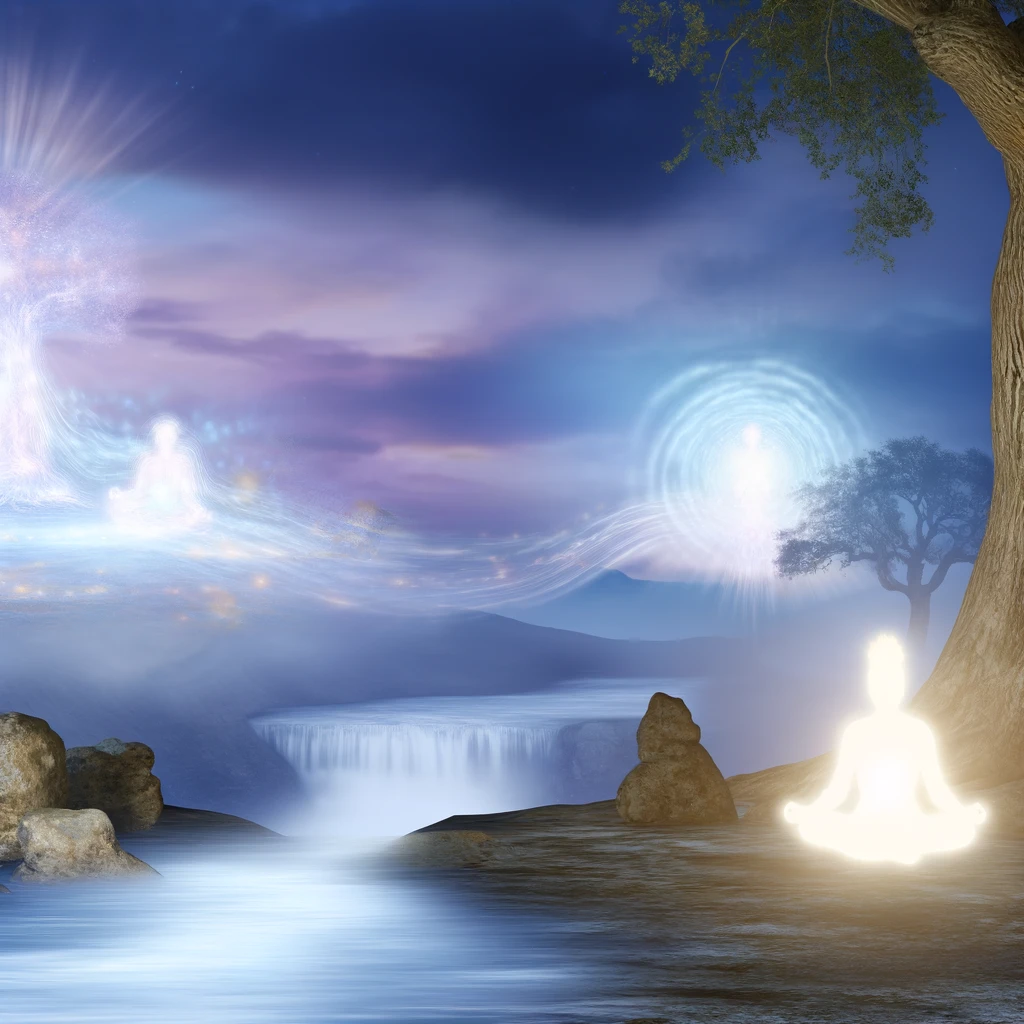
The core essence of Advaita Vedanta
Let us explore the core principles of Advaita Vedanta, a non-dualistic spiritual philosophy emphasizing the oneness of the individual self (Atman) with the ultimate reality (Brahman). It explains that our sense of separation from the Divine is due to ignorance of our true nature. By removing this ignorance through practices like self-inquiry and meditation, we can experience spiritual awakening and realize our inherent oneness with God. This journey of self-realization leads to lasting peace, joy, and a profound understanding of the interconnectedness of all existence.
Advaita Vedanta speaks of a profound spiritual truth
God is not separate from us.
According to the timeless wisdom of Advaita Vedanta, the ancient non-dualistic philosophy of India, we are not truly separated from the Supreme by the illusory boundaries of space, time, or even our individual selves. The sacred Upanishads, which form the foundation of this profound teaching, proclaim “Tat Tvam Asi” – “Thou art That” – affirming the fundamental unity of the individual soul with the ultimate reality.
The only veil that obscures this truth is the ignorance that causes us to identify with our temporary bodies, thoughts, and experiences, rather than our true nature as pure, unchanging awareness. Just as the sun shines equally upon all objects without discrimination, the light of consciousness illuminates our entire existence, yet we mistakenly perceive ourselves as distinct and separate entities.
The enlightened masters of this ancient tradition have provided us with a roadmap to spiritual awakening, a journey of self-discovery that leads us back to our inherent oneness with the Divine. This path does not require us to go anywhere or become something else; instead, it invites us to turn our attention inward, to investigate the very essence of our being.
Through practices such as self-inquiry, contemplation, and the study of sacred texts, we can gradually remove the layers of ignorance that cloud our perception. As we do so, we begin to awaken to the truth that has always been right in front of us – that we are not limited, finite beings, but rather expressions of the infinite, eternal awareness that is the Divine.
The 17th-century French philosopher René Descartes famously declared, “I think, therefore I am,” arriving at the certainty of his own existence through a process of radical doubt. However, the sages of India urge us to take this inquiry even further, to investigate the very nature of the “I” that thinks and exists.
As we delve deeper into our own consciousness, we discover that our true identity is not the ego or the mind, but rather the pure, unchanging witnessing presence that underlies all experience. This is the true Self, which is identical to the ultimate reality that pervades all of existence.
The great masters of this wisdom tradition, such as Adi Shankara and Ramana Maharshi, have exemplified this path of self-realization, attaining the highest state of spiritual awakening and sharing their insights with countless seekers. They remind us that the journey to enlightenment is not a distant goal, but a living possibility available to each and every one of us.
By embracing the teachings of Advaita Vedanta and committing ourselves to the path of self-inquiry, we can unlock the infinite potential within us and realize our true nature as the Divine. As we awaken to our oneness with the Supreme, we experience a profound sense of peace, joy, and fulfillment that transcends all worldly concerns.
In the words of Sri Nisargadatta Maharaj, one of the most revered sages of modern times, “When I look inside and see that I am nothing, that’s wisdom. When I look outside and see that I am everything, that’s love. Between these two, my life turns.” May we all have the courage and dedication to embark on this transformative journey of self-discovery, and may we all realize the truth of our being as the eternal, blissful consciousness that is our birthright.
For a much deeper insight into the nature of Brahman, you can refer to my previous session article here: Chapter 6. The true nature of Brahman
You can refer to this article for additional context
Hare Krishna.
kṛṣṇadaasa
Servant of Krishna